Find the domain of the following relation:
{(2, 1) (-1, 0) (-1, 3) (0, 2) (-5, 1)}
D: {-5, -1, 0, 2}
Identify the domain and range of the following:
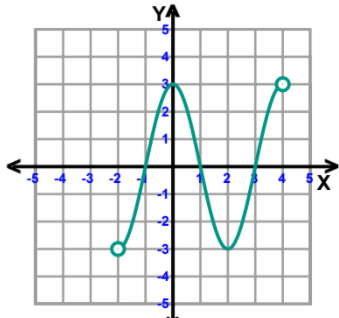
D: -2 < x < 4
R: -3 ≤ y ≤ 3
What is the domain and range of the following graph?
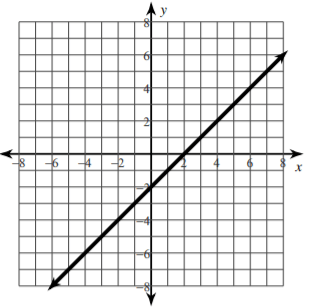
D: All real numbers (ℝ)
R: All real numbers (ℝ)
Does the following represent a function? Why or why not?
{(2, 1) (-1, 0) (-1, 3) (0, 2) (-5, 1)}
No, -1 has two different outputs.
Is the graph discrete or continuous? Why?
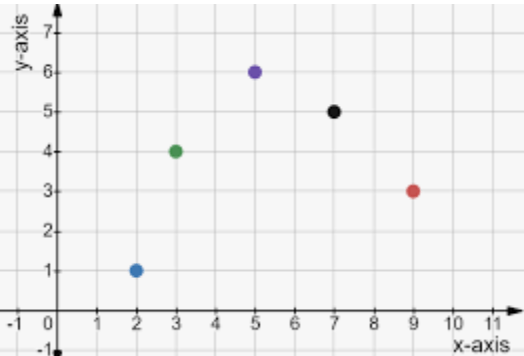
Discrete, the points are not connected.
What quadrant is point C in?
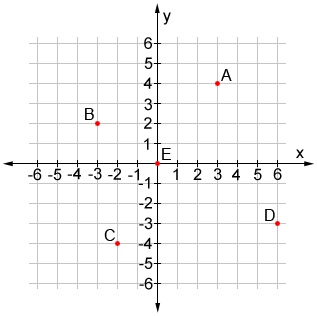
III
Draw a mapping of the following relation:
{(0,5), (0,2), (-1, 2), (1, -5), (4,-3)
Find the range of the following relation:
{(2, 1) (-1, 0) (-1, 3) (0, 2) (-5, 1)}
R:{0, 1, 2, 3}
Identify the domain and range of the following graph:
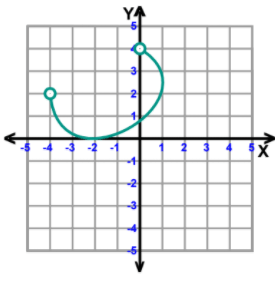
D: -4 < x ≤ 1
R: 0 ≤ y < 4
What is the domain and range of the graph?
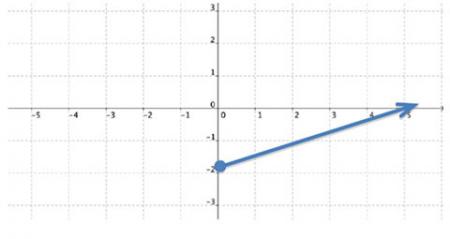
Domain: x ≥ 0
Range: y ≥ -2
Does the following represent a function? Why or why not?
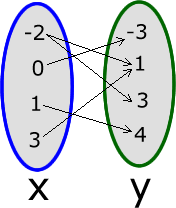
No, -2 goes to both 1 and 3.
Is this a discrete or continuous function? Why?
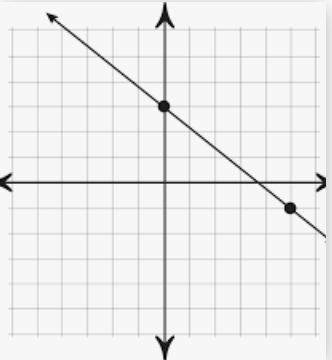
Continuous, the points are connected.
What are the coordinates of point B?

(-3,2)
Is this a function?
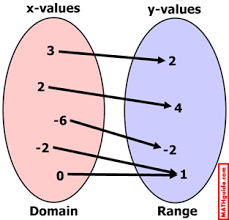
Yes! (every x goes to exactly one y)
Find the domain and range of the following relation:
{(0, 1) (0, 2) (0, 0) (0, -2) (0, -8)}
D: {0}
R: {-8, -2, 0, 1, 2}
Identify the domain and range of the following:
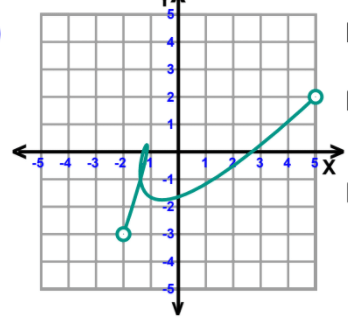
D: -2 < x < 5
R: -3 < y < 2
What is the domain and range of the following?
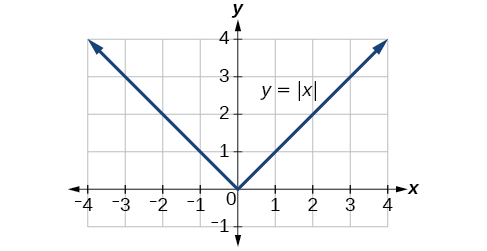
Domain: ℝ
Range: y ≥ 0
Is the following a function? Why?
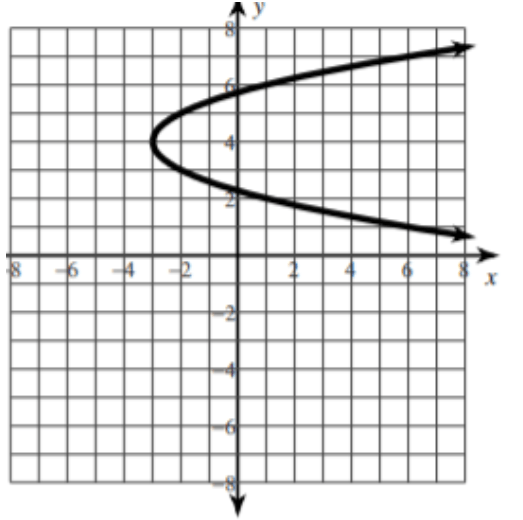
No, it fails the vertical line test because it crosses the graph 2 times.
Is the following scenario discrete or continuous? Why?
The low and high temperatures of the day.
Continuous, because the temperature can be any value between the lowest and highest.
Which points have positive x-coordinates?
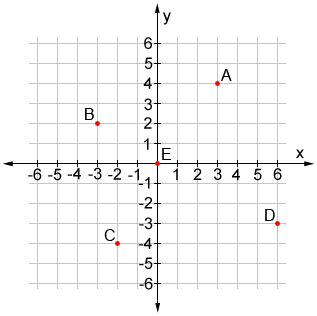
A, D
Write down the ordered pairs for this mapping:
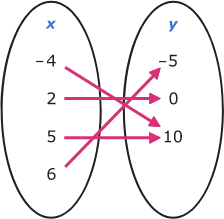
{(-4,10),(-2,0),(5,10), (6,-5)}
What is the domain of the following?
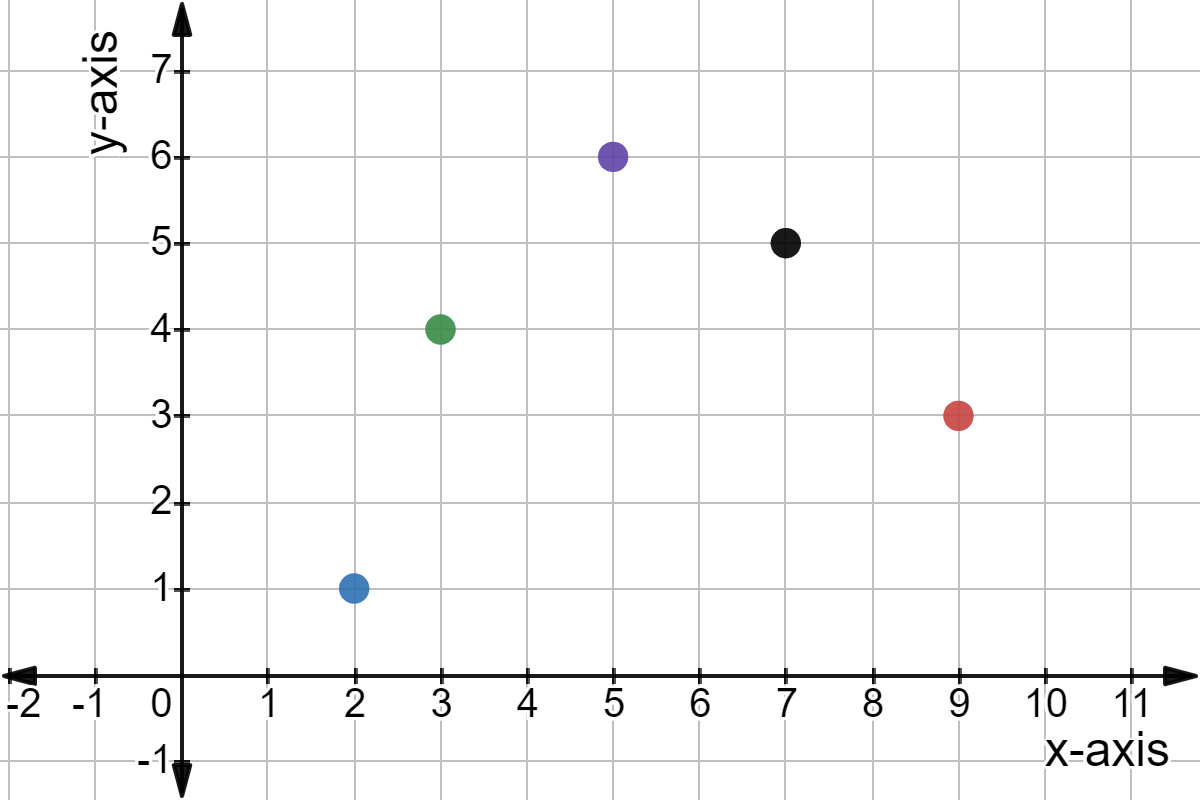
D: {2, 3, 5, 7, 9}
Determine the domain and range of the graph.

D: -5 < x ≤ 1
R: -3 ≤ y ≤ 1
Identify the domain and range of the following graph.
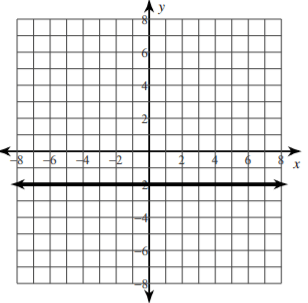
Domain: ℝ
Range: y = -2
Is the following a function? Why?
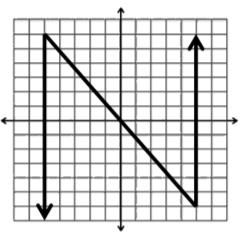
No, it fails the vertical line test because it crosses the graph an infinite number of times.
A continuous function has data values that can be ___________. (measured or counted)
Measured
What is the origin?
The origin is the point (0,0) in the middle of the coordinate plane
True or false: this would be a function if you reversed X and Y.

False! Then the 10 would map to both 5 and -4, so it would not be a function.
What is the domain of the following graph:
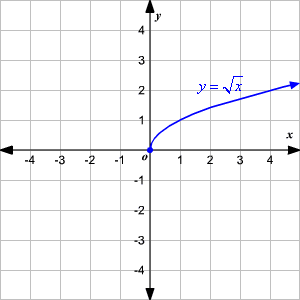
D: x ≥ 0
What is the domain and range of the following?
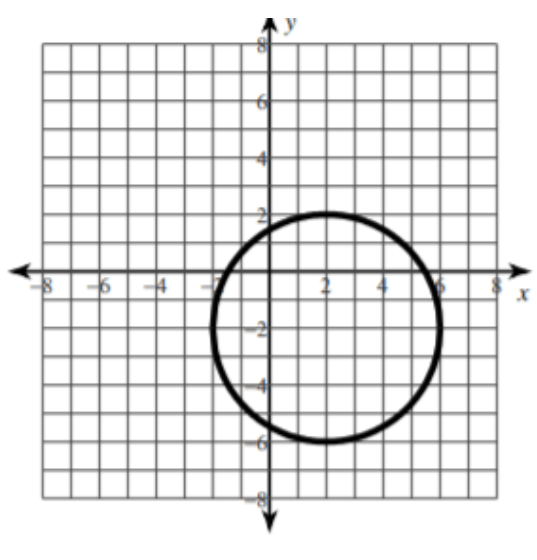
D: -2 ≤ x ≤ 6
R: -6 ≤ y ≤ 2
What is the domain and range of the horizontal line in the graph?
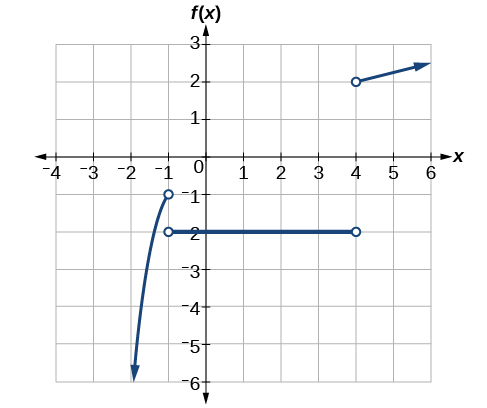
D: -1 < x < 4
R: y = -2
Is the following a function? Why?
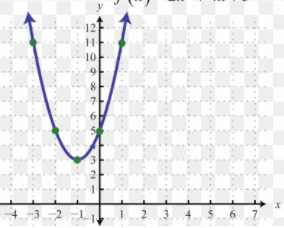
Yes. It passes the vertical line test. Every input has only 1 output.
Give an example of discrete data and continuous data.
Sample discrete: The number of students on the track team.
Sample continuous: The amount of time it took for a student to run a mile.
What is the definition of a function?
A relation in which each element of the domain is paired with exactly one element of the range.
Draw a mapping that is *not* a function